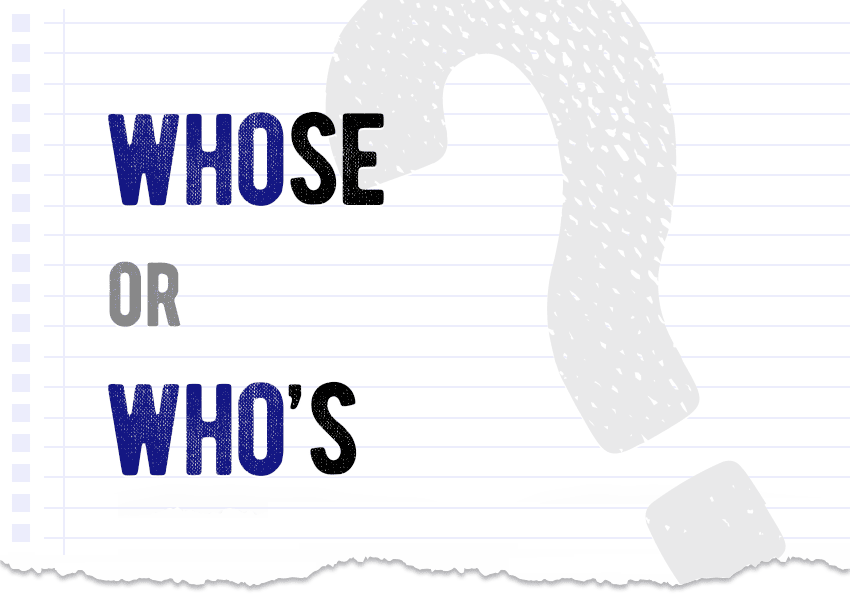What’s the difference between whose and who’s?
Here comes another pair of homonyms— words with identical pronunciation — who’s vs whose. They may look similar, but their meaning is entirely different, and they are often misused. Let’s have a closer look at each of them and see what the correct choice should be in context.

Whose vs who’s – the similarities
We know that the two words sound alike, and there’s another similarity – both whose and who’s derive from the pronoun ‘who’, and just like ‘who’ they can function as an interrogative pronoun (i.e. to ask questions), or a relative pronoun (i.e. to add information ), depending on the context. Keep reading for other examples.
For more information about the object pronoun ‘whom’ with grammar tips and example sentences check out this article:
READ ALSO:
- Nosey nosy – Which one is correct?
- Journey plural form – Check the correct spelling
- Atleast meaning and correct spelling
- Time flys or flies – Which one is correct?
- Is it wether or whether? – What is the difference?
Why use whose? Meaning and correct use
Whose is a possessive pronoun, which means that it’s a word that shows possession – or in other words the possessive form tells us someone or something owns something. Contrary to popular belief, ‘whose’ can be used not only for people or animals, but also for inanimate objects, e.g. ‘the house whose story we told’.
Pay attention to the form of the pronoun and in particular the final letter ‘e’ – incorrect queries from search engines like ‘who whos’, ‘whose or whos’, ‘who’s whos’ or ‘whos and whose’ suggest that the misspelling ‘whos’ is quite widespread.
Have a look at whose in context
She is a woman of honour and smartness whose wild leaves out luck, always taking risks, and there is something in her brow now, that only she can recognize in a mirror.
Michael Ondaatje, The English Patient, 1992
READ ALSO:
- Shiney or shiny – Which one is correct?
- Chosing or choosing – What is the difference?
- Cheff or chef – Check the correct spelling
- Succesfully or successfully – Which one is correct?
- Is simpler a word?
The meaning and the correct use of who’s
Who’s often appears in informal texts. It is quite a common contraction of two phrases: ‘who is’ and ‘who has’. See the examples illustrating who’s in the two contexts:
You can love somebody without it being like that. You keep them a stranger, a stranger who’s a friend.
Truman Capote, Breakfast at Tiffany’s and Three Stories, 1958
It’s like looking at all the students and wondering who’s had their heart broken that day, and how they are able to cope with having three quizzes and a book report due on top of that.
Stephen Chbosky, The Perks of Being a Wallflower, 1999
If you want to make sure whether you used your apostrophes correctly, there is a simple method. Just try to replace your who’s with ‘who is’ or ‘who has’. If the sentence still makes sense, your who’s is in the right place.


